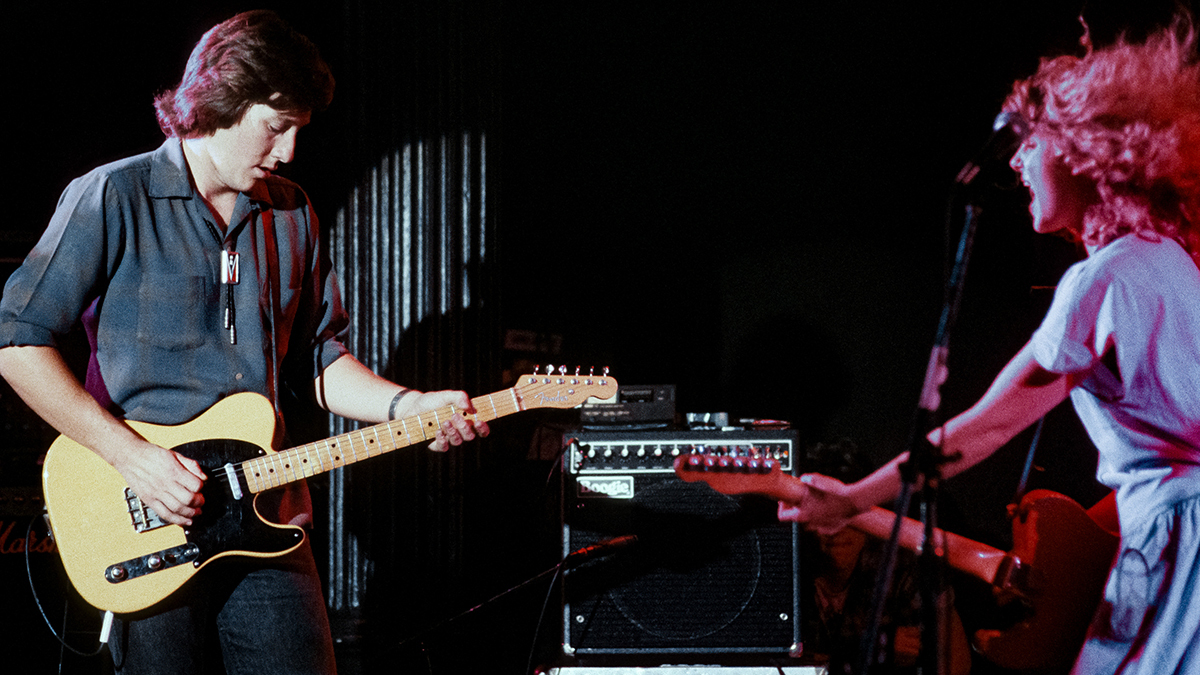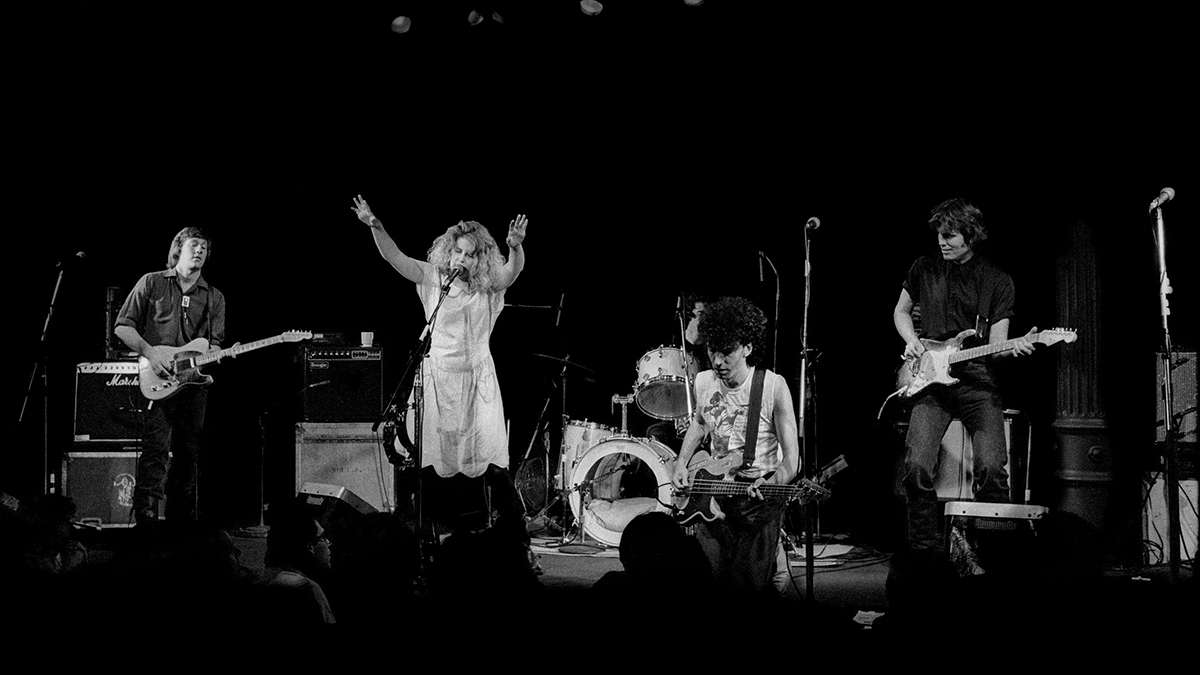“Geffen thought we were too young to write our own songs. Bob Dylan wrote a song, Bruce Springsteen had a song”: Ryan Hedgecock on Lone Justice's brief but fierce ’80s run – and how Tom Petty and Mike Campbell ended up penning a song on their debut
The promising young band were the subject of a flurry of publicity after they were signed to Geffen, but a behind-the-scenes mismatch in vision led to the outfit's premature demise

All the latest guitar news, interviews, lessons, reviews, deals and more, direct to your inbox!
You are now subscribed
Your newsletter sign-up was successful
Lone Justice had all the makings of an iconic group: kicking off as part of L.A.'s ’80s-era cowpunk scene, with big-voiced Maria McKee out front, not to mention Ryan Hedgecock's formidable guitar chops and early support from Dolly Parton and Linda Ronstadt – all before signing to Geffen.
While the band disbanded after a fairly short lifespan, the Geffen connection came with perks: like having a song written for them by Tom Petty and Mike Campbell.
“The way we got involved with Petty was through [renowned producer and music industry entrepreneur] Jimmy Iovine,” Hedgecock tells Guitar World. “When we signed with Geffen, there was a whole parade of producers, and the one that was settled on was Jimmy Iovine, who brought a lot of famous friends with him.
“He was somebody who was into doing lots of favors, but the great thing about it was that Petty had that song, Ways to Be Wicked, and he and Mike Campbell kind of took us under their wings in some ways.
However, the band's age did play a role in Geffen's perception of their capabilities as songwriters – signaling a mismatch in vision and direction that would lead to the band's premature demise.
“When it came time for us to put out our single, Geffen thought we were too young to write our own songs,” he relays. “Bob Dylan wrote a song for us, Petty had that song for us, and Bruce Springsteen had a song for us. We listened to all of them, but Petty came into the studio and played it for us, and hung out with us.
“He was a great guy and a real solid musician. I think he had an idea… he was a lot closer to us than Jimmy Iovine. You know, Jimmy Iovine’s influence on the band really proved to be not a very good one. He really didn’t understand the band at all.”
All the latest guitar news, interviews, lessons, reviews, deals and more, direct to your inbox!
Despite the flurry of publicity following the band's signing, their self-titled 1985 debut release – while critically lauded – did not meet commercial expectations.
In an effort to save the band after bassist Marvin Etzioni and drummer Don Heffington's departures, McKee and Hedgecock assembled a new band and recorded their second album, Shelter – a quasi-180 from the band's distinct cowpunk, roots rock, and rockabilly sound, in favor of the more typical ’80s pop-rock production.
According to the guitarist, this massive change in direction was all due to “Jimmy Iovine. He had no idea.”

“So, his first thing was to try to divide the band, which he did seamlessly," Hedgecock spills. “He came in and pretty much just pulled Maria away from the band. And then, management did the same thing.
“Once they separated us, they separated us from my vision of what the band should have been. You can hear it if you listen to the records.”
Less than a year after Shelter's release, McKee broke up the band for good, and Hedgecock left L.A. for New York, starting a new chapter with Amy Allison under the moniker Parlor James. However, thankfully, that wasn't the end of Lone Justice – in 2024, the alt-country pioneers released their first album in nearly 40 years, Viva Lone Justice.
The new-yet-old album has its origins in vintage tapes laid down in the early ’90s by McKee, Etzioni, and Heffington when they were heading out on one of her solo tours – capturing the spunky spirit of a nascent L.A. band in the early ’80s with boatloads of potential.
Guitar World's full interview with Ryan Hedgecock will be published in the coming weeks.
Janelle is a staff writer at GuitarWorld.com. After a long stint in classical music, Janelle discovered the joys of playing guitar in dingy venues at the age of 13 and has never looked back. Janelle has written extensively about the intersection of music and technology, and how this is shaping the future of the music industry. She also had the pleasure of interviewing Dream Wife, K.Flay, Yīn Yīn, and Black Honey, among others. When she's not writing, you'll find her creating layers of delicious audio lasagna with her art-rock/psych-punk band ĠENN.
You must confirm your public display name before commenting
Please logout and then login again, you will then be prompted to enter your display name.


